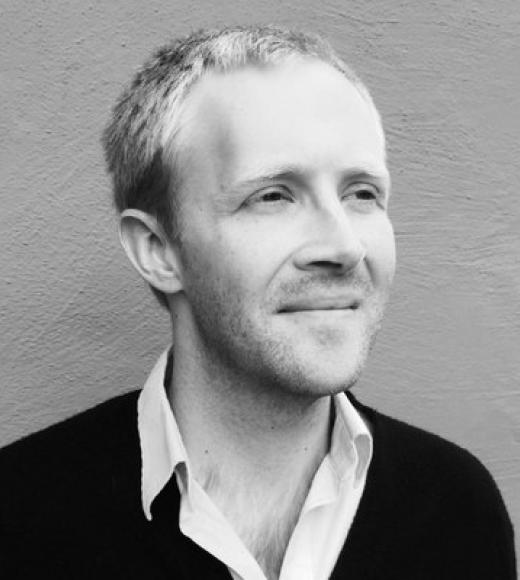
Position Title
Associate Professor
Education
- Ph.D., History, University of Michigan, 2011
- B.A., History (highest honors, highest distinction), University of Michigan, 2005
About
Ian Campbell is a historian of pre-Revolutionary Russia with particular interest in the relationship between non-Russian subjects (and territories) and the imperial core. His first book, Knowledge and the Ends of Empire (Cornell, 2017) investigates the relationship between what tsarist bureaucrats knew about one part of the empire, the Kazak steppe, and the policies they actually enacted, with a particular interest in the shifting role of local intermediaries and the expertise they possessed. Based on archival fieldwork in St. Petersburg, Moscow, and Almaty, and on Russian- and Kazak-language primary sources, it was shortlisted for the Central Eurasian Studies Society's 2018 Book Prize in History.
He is currently working on two book-length projects. The first, The Bleeding Edges: Borderlands Violence and Russia's Enduring Empire, 1800-1917, studies violent practices of counterinsugency and conquest across multiple borderlands -- Poland, the Caucasus, and Turkestan. The second, Sowing Russianness? Kazakhstan as a Settler Colony, reframes the history of the steppe region of the Russian Empire through the analytical lens of settler colonialism.
A native of Michigan's Upper Peninsula, he completed his B.A. (2005) and Ph.D (2011) at the University of Michigan, and a postdoc at Harvard's Davis Center for Russian and Eurasian Studies, before joining the faculty at UC-Davis in 2012. He does not miss the cold.
Research Focus
Russian Empire; 19th-century Europe; comparative colonialism and imperialism; Central Asia; military; environmental
Publications
- Campbell, I. (2024). "'To Indulge the Tears of Women and Children': Masculinity, Violence, and Mercy in the Conquest of the Caucasus." The Russian Review 83.4.
- Campbell, I. (2023), with Aibubi Duisebayeva. "Changes in the Flock: Sheep-Keeping as a Symbol of the Transformation of the Kazakh Traditional Economy." Central Asian Survey 42.1, pp. 127-148.
- Campbell, I. (2022). Знание и окраины империи: казахские посредники и российское управление в степи, 1731-1917 (Academic Studies Press). Russian translation of Knowledge and the Ends of Empire.
- Campbell, I., ed. (2021). "Violence on the Imperial Borderlands." Special issue of Russian Studies in History, 60.1-4, pp. 49-134.
- Campbell, I. (2020). "Nationalizing Violence in a Collapsing Empire: A View from the Steppe." Ab Imperio 2020.3, pp. 98-113.
- Campbell, I. (2019). "Violent Acculturation: Aleksei Kuropatkin, the Central Asian Revolt, and the long shadow of conquest," in Aminat Chokobaeva, Cloe Drieu, and Alexander Morrison, eds., The Central Asian Revolt of 1916: A Collapsing Empire in the Age of War and Revolution (Manchester University Press), 191-208.
- Campbell, I. (2019). "Bloody Belonging: Writing Transcaspia into the Russian Empire," in Lewis Siegelbaum and Krista Goff, eds. Empire and Belonging in the Eurasian Borderlands (Cornell University Press), 35-47.
- Campbell, I (2018). "'The scourge of stock raising': Zhut, limiting environments, and the economic transformation of the Kazak steppe," in Nicholas Breyfogle, ed., Eurasian Environments: Nature and Ecology in Imperial Russian and Soviet History" (University of Pittsburgh Press), 43-59.
- Campbell, I. (2017) Knowledge and the Ends of Empire: Kazak Intermediaries and Russian Rule on the Steppe, 1731-1917 (Cornell University Press).
- Campbell, I. (2014) "Our friendly rivals: Rethinking the Great Game in Ya'qub Beg's Kashgaria, 1867-1877," Central Asian Survey 33.2, 199-204.
- Campbell, I. (2011) "Settlement promoted, settlement contested: The Shcherbina Expedition of 1896-1903," Central Asian Survey 30.3-4, 423-436.
Teaching
Prof. Campbell regularly offers two lower-division courses, one (History 1) an introduction to history as a discipline, the other a survey of modern European history (History 4C). For upper-division students, he offers a sequence on Russian history (History 138A-C); courses on European military history (History 119 and 145); and an eclectic range of seminars on Russian history (History 102F), most recently focusing on Islam in the Russian Empire and Soviet Union.
Awards
- American Councils Title VIII Advanced Research Fellowship, 2018-19
- Postdoctoral Fellowship, Davis Center for Russian and Eurasian Studies, Harvard University, 2011-12
- Fondiler Dissertation Prize, Department of History, University of Michigan (most outstanding dissertation of 2011)
- Fulbright-Hays Doctoral Dissertation Research Abroad grant (for fieldwork in Russia and Kazakhstan, 2008-2009)